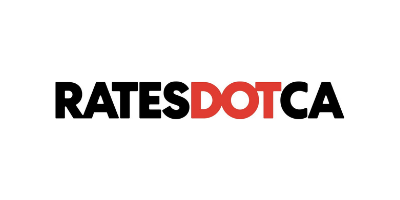Have you ever thought about what would happen if you passed away earlier than expected, leaving your family behind with ongoing mortgage payments and other bills to pay? What if you still have children who depend on your income to make ends meet?
That’s why having a life insurance policy in place may be wise. With life insurance, you can rest easy knowing that your loved ones won’t be stuck having to fend for themselves when you pass on. Instead, they can be paid out a lump sum that can be used to cover all of life’s biggest expenses.
There are various types of life insurance including permanent life insurance. Let’s get into more detail about this type of policy to help you decide if this is the appropriate one for you.
What Is Permanent Life Insurance?
Permanent life insurance provides coverage over the total length of your life. This is in stark contrast to term life insurance, which expires after an agreed-upon date. Instead, permanent life insurance coverage will end only after you pass away.
Like other forms of life insurance, a permanent policy will pay out your beneficiaries a tax-free lump sum of money after you die. This type of policy is typically guaranteed not to go up after you buy the policy.
Permanent life insurance often has a savings component to it, which is referred to as the “cash surrender value” (CSV). Your premiums will go partly toward the death benefit and another part will go towards the cash value of the policy. This cash value operates as somewhat of a tax-deferred savings account that can earn interest over time and help you build wealth.
How Does Permanent Life Insurance Work?
Like other types of insurance policies, you will be required to pay a premium either on a monthly or annual basis to maintain coverage. The premium you pay will be based on a variety of factors, including the following:
- Age
- Gender
- Occupation
- Personal health history
- Family health history
- Smoking
- Risky behaviours
- Type of coverage
- Type of policy
- Coverage amount
So, a non-smoking young person in good health who does not participate in dangerous activities would likely pay lower premiums compared to an older person with chronic health issues who also smokes and lives a risky lifestyle.
When you pass away, your beneficiaries will be paid out the death benefit in a lump sum that is free from taxation. A death certificate will likely have to be submitted to the insurer as proof of death in order for the benefit to be paid.
As long as you keep up with your premium payments, you will be covered for life. Regardless of whether you pass away when you’re 50 or when you’re 100, the same death benefit will be paid out to those you’ve listed on your policy.
When enough cash value has been built up, you can take out a loan against the policy and use the funds as you see fit, including paying for premiums or increasing the death benefit.
Pros And Cons Of Permanent Life Insurance
Pros
- Protection for life. Unlike term life insurance that expires at a certain point, permanent life insurance is guaranteed to cover you for your entire life, as long as you are up-to-date with all premium payments.
- Cash asset. Many permanent life insurance policies grow in cash value over time. When enough cash value is accumulated, you can access these funds and spend it according to your needs or invest it.
- Tax perks. The cash value of your policy grows tax-deferred, and when you pass away, the death benefit paid out is tax-free.
- Flexibility in premiums. Depending on your policy, you may be able to change the amount and frequency of your payments.
- Collateral for a loan. If you apply for a loan, the cash value of the policy may serve as collateral.
Cons
- Cost. A permanent life insurance policy is more expensive than a term life insurance policy when you are young. That said, a permanent policy is usually a lot less expensive than term life insurance when you apply later on in your life.
- Potential risk in investment. A portion of your policy goes toward a certain investment, and if that investment goes sour or offers a low rate of return, you may be wasting money that could go towards a more sound investment.
Permanent Life Insurance Providers
A permanent life insurance policy can be obtained directly from an insurance company, insurance agent, bank, or from an aggregate.
Types Of Permanent Life Insurance
There are various forms of permanent life insurance that provide lifelong coverage, but they differ in certain ways, particularly when it comes to the cash value growth of the policy:
Whole Life Insurance
This is a common form of permanent life insurance and is also the simplest. Your insurer will establish a fixed rate of return for your policy.
Universal Life Insurance
The cash value of a universal life insurance policy is fixed to a market index, and the interest earned is dependent on the current market rate. Returns tend to fluctuate from time to time since they are subject to market conditions.
Variable Life Insurance
This is the riskiest policy but can bring in the highest returns as a result. You will have a portfolio of investments that are chosen based on your financial goals and risk tolerance, and the cash value will be invested in these accounts accordingly.
Term 100 Insurance
This insurance policy offers lifelong coverage, but premiums will cease when/if you turn 100 years of age. There isn’t usually a cash value component associated with this type of policy, which is why it is generally the cheaper option compared to other forms of permanent life insurance policies.
Should You Take Out A Permanent Life Insurance Policy?
A permanent life insurance policy is great for those who wish to be covered for their entire lives. This will ensure that your beneficiaries will receive a payout regardless of when you pass away. However, permanent life insurance is usually a lot more expensive than a term policy, so you will want to make sure that the premiums fit within your budget.






